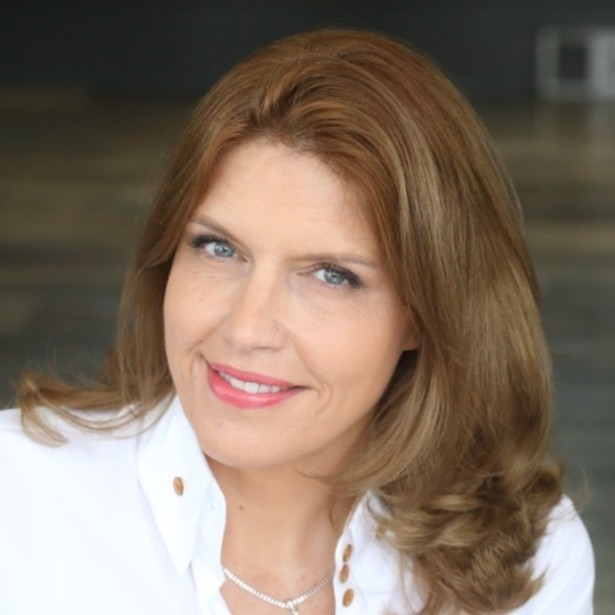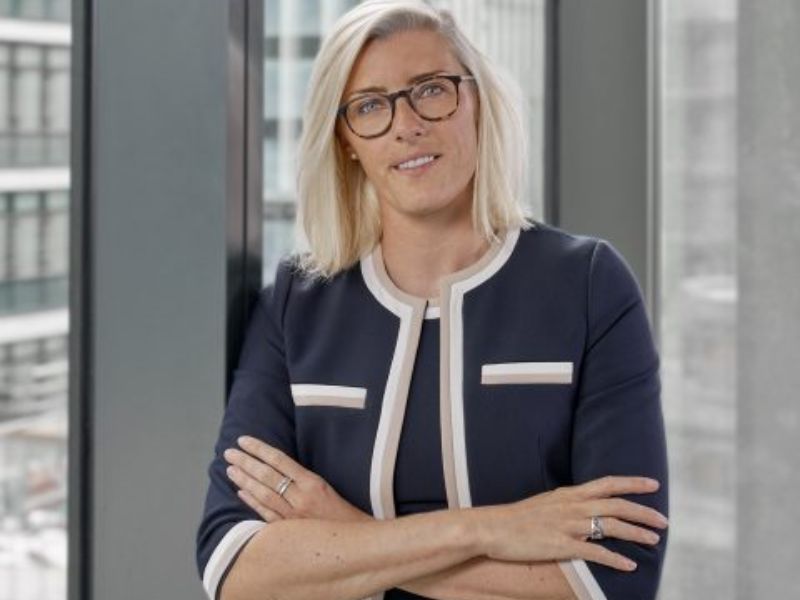 Rachel Turner co-founder of VC Talent Lab and a ‘founder whisperer’ with over 20 years’ experience as a transformative leadership advisor to start-up and scale-up businesses.
Rachel Turner co-founder of VC Talent Lab and a ‘founder whisperer’ with over 20 years’ experience as a transformative leadership advisor to start-up and scale-up businesses.
She works with founders of VC-backed businesses, from blitzscaling tech companies to global consumer brands and professional services organisations. Her new book, The Founder’s Survival Guide is the go-to book to help founders to scale and adapt their leadership style as their company grows, an essential requirement for a business to thrive.
Please tell us a bit about yourself, background and your current role. How did you get started as a leadership advisor and co-founder of VC Talent Lab?
I am married to my teenage sweetheart Francesco and we split our time between our homes in Soho and Sussex. When I was growing up, I was supposed to go to university, however, when I was on a gap year, I talked my way into a job with an Italian record label doing promotion for them in the UK. As I did a great job for them, within three months they gave me a full-time position. After a year, I was made a director of the limited company they launched in the UK, meaning I was a director of my first limited company at the age of 18!
I then set up another four businesses in the music industry, before leaving the industry completely when I was 26. I was very good at getting businesses off the ground (every business I got off the ground was very successful), but I had trouble when trying to scale them.
By that point, I had also realised that although my job and lifestyle was really cool, to me, it didn’t feel very meaningful. So, I retrained, went to university and completed a degree in Applied Psychology. In my second year of my degree, I discovered the idea of executive coaching. So alongside studying, I also did a two-year executive coaching course. Three days after I finished my finals, I set up my practice and I’ve been in full time coaching practice for the last 22 years.
As a coach, my area of specialism has always been founders and business owners.
My business partner and I set up VC Talent Lab three years ago to put leadership development at the heart of the VC ecosystem. We really felt there was a gap in the VC and the invested business ecosystem – in terms of the level of support on leadership, how you become an effective CEO, how you build a high-performing leadership team, and how you build an effective culture.
Did you originally aim to end up coaching and advising leaders?
I didn’t plan my move into coaching, it was a bolt out of the blue inspiration. The decision to become a coach came because I knew I wanted to be involved in personal development, but I knew I didn’t want to go down the therapy route. I trained as a counsellor, but that wasn’t the right fit. I didn’t want to be an academic psychologist either. I couldn’t really work it out. Then, when looking through Cosmo, I saw a magazine article for coaching. It said something like, leadership advisor, mentor, coach, and it had all this list of different things. I was like, I want to do that! Within three hours, I’d signed up for the two-year course!
Have you faced any challenges along the way? How did you overcome them?
I have made mistakes, and it has been when I haven’t paid attention to the fact that the business is changing, but I’m not. I thought that what made you a successful entrepreneur would make you a very successful business owner. I was very good at that entrepreneurial phase, but as something grows into a business that needs management of processes and procedures – I didn’t realise that that stage requires a very different skillset.
What works at start-up, will be different at scale-up, and what works in one business may not work in another. It’s about having that ability to understand when your superpowers and your default play well, and also recognising when they’re not going to play so well so that you can either adapt, or bring in the support that you need to be successful at that stage.
What has been your biggest achievement to date?
I have had lots of achievements and many proud moments. A professor at my former university wanted to be a writer, screenwriter and film director, so I coached him along his journey. To go from him being my professor to three years later, me helping him bridge the gap and becoming a best-selling author was really rewarding.
I also had a client who, when he started working with me, had just been exited from a company and was in a really bad way. He had an idea for a world-changing business, in an off-site that I ran for him, and he’s gone on to make that a 240-million-pound business. That makes me really proud.
What one thing do you believe has been a major factor in you achieving success?
I am a big believer in planning. I always have a three-year plan and a one-year plan. I always have 90-day goals, goals for the month, goals for the week and targets for the day. All the business and personal effectiveness literature tells you that these things are crucial to success and it’s true. It’s as Benjamin Franklin said “If you fail to plan, you are planning to fail”.
I have also seen, time and time again, that mindset trumps ability. I believe in striving to the the best version of yourself and taking complete responsibility for your choices and your actions. I also choose to believe that anything is possible if I set your mind to it. Those aren’t easy maxims to live by but I do try, every day, one day at a time, to embody them.
Finally I think that self-awareness is key. Leaders who are aware of their own strengths and weaknesses, who understand that what they need is not necessarily what their people need, who think about their impact on others, who are aware of what triggers them and how to manage their emotional responses. Self-awareness is crucial to long term success as a leader.
I know I’m cheating and giving you three things rather than one!
What is your favourite thing about your job? Is it the variety? Or maybe working with so many people?
What I love is that it’s never ever boring! On any one day I might be coaching a CEO of a global organisation, a FinTech unicorn founder and a world champion sports person. The range of people that I meet, and the range of challenges they face and the various goals they’ve got is enormous. I’m always learning about different sectors, different products, different cultures, different people and that fascinates me. I am continually developing and learning in my job.
I also get an absolute buzz when my clients achieve amazing things. I love seeing a client on TV or on the front-cover of a magazine being celebrated for their success and knowing that I had a small part to play in that.
How do you feel about mentoring? Have you mentored anyone or are you someone’s mentee?
Whenever I am looking to expand into a new field or a new specialism, I will always look for people who I admire in those fields. Sometimes I will ask if I can shadow someone and will also ask if we can do a quid pro quo – I’ll help them with something and they help me in return. I think it’s one of the fastest ways to learn in a professional setting.
I think reverse mentoring is also great. For example, a company that recognises generational differences, where they’ve got people in their twenties mentoring senior leadership teams on social media, while senior people are coaching the younger employees on their career progression. I think mentoring in general is fantastic.
If you could give one piece of advice to your younger self what would it be?
I completely stopped drinking five years ago, however, I wish I’d stopped 25 years ago. I think life without alcohol is so much cooler than life with alcohol. Taking alcohol out of the equation is so good for your mental health, your physical health, your energy and your drive. I don’t miss it at all and the benefits that I’ve had from the last five years of not drinking have been incredible. So, I would have stopped drinking when I was 25, not 45.
Lots of founders don’t think about how they will have to change as a business grows. What are the main things founders should look out for along the journey?
Along the way, founders need to shift from being doer in chief, to planner in chief, to strategist in chief. As a business grows, they need to move from being entrepreneurial, to operational, to strategic and will often need to bounce between those different ways of thinking all on the same day.
The scale-up phase of a business is all about building the business processes, systems and ways of working so that the business can operate at scale. Once those systems are well established and a founder has a strong leadership team managing day to day operations, they need to elevate out of that level of detail and shift to a more strategic, visionary and outward looking style of leadership.
It’s also important to understand the importance of clarity as a business grows. It’s essential that the founder, leadership team and wider organisation are clear on and aligned around the business’s purpose, vision, strategy and priorities. That sounds easy but actually takes an enormous amount of time and energy.
Founders need to think about how the decisions they and their team make will impact company culture. Founders are the DNA from which company culture will grow, and the seemingly small decisions you make, and behaviours you engage in will multiply and become the culture of the entire organistaion.
Lastly, founders should invest time in hiring, promoting, encouraging and training leaders, as a business will only be as good as it’s worst leader. Founders need to make sure they are focused on good communication, management and leadership skills. These are like the veins in the body – they carry blood around the body, and even if you have great blood and a great heart, if the veins are broken, the system doesn’t work. So being really thoughtful about the people, skill and culture is vital.
What is your next challenge and what are you hoping to achieve in the future?
My next challenge is to do what I encourage my clients to do and with even more accountability and consistency – to quiet down my ambition and balance personal drive with doing what serves my vitality, purpose and livelihood. Writing this book, balancing revenue and generating work has tested this significantly!








